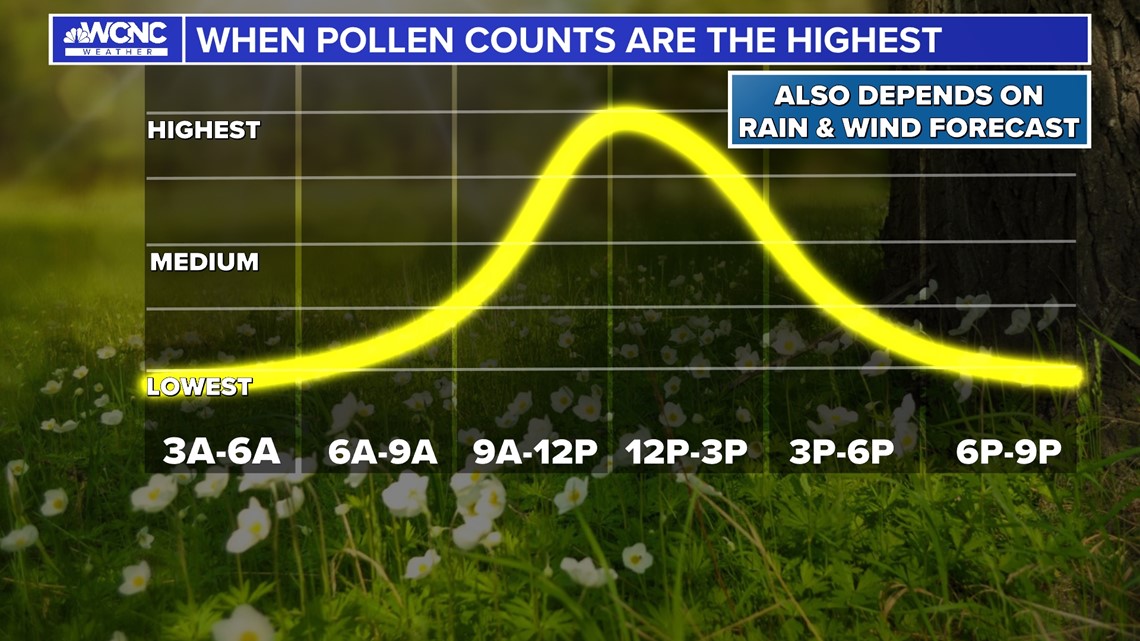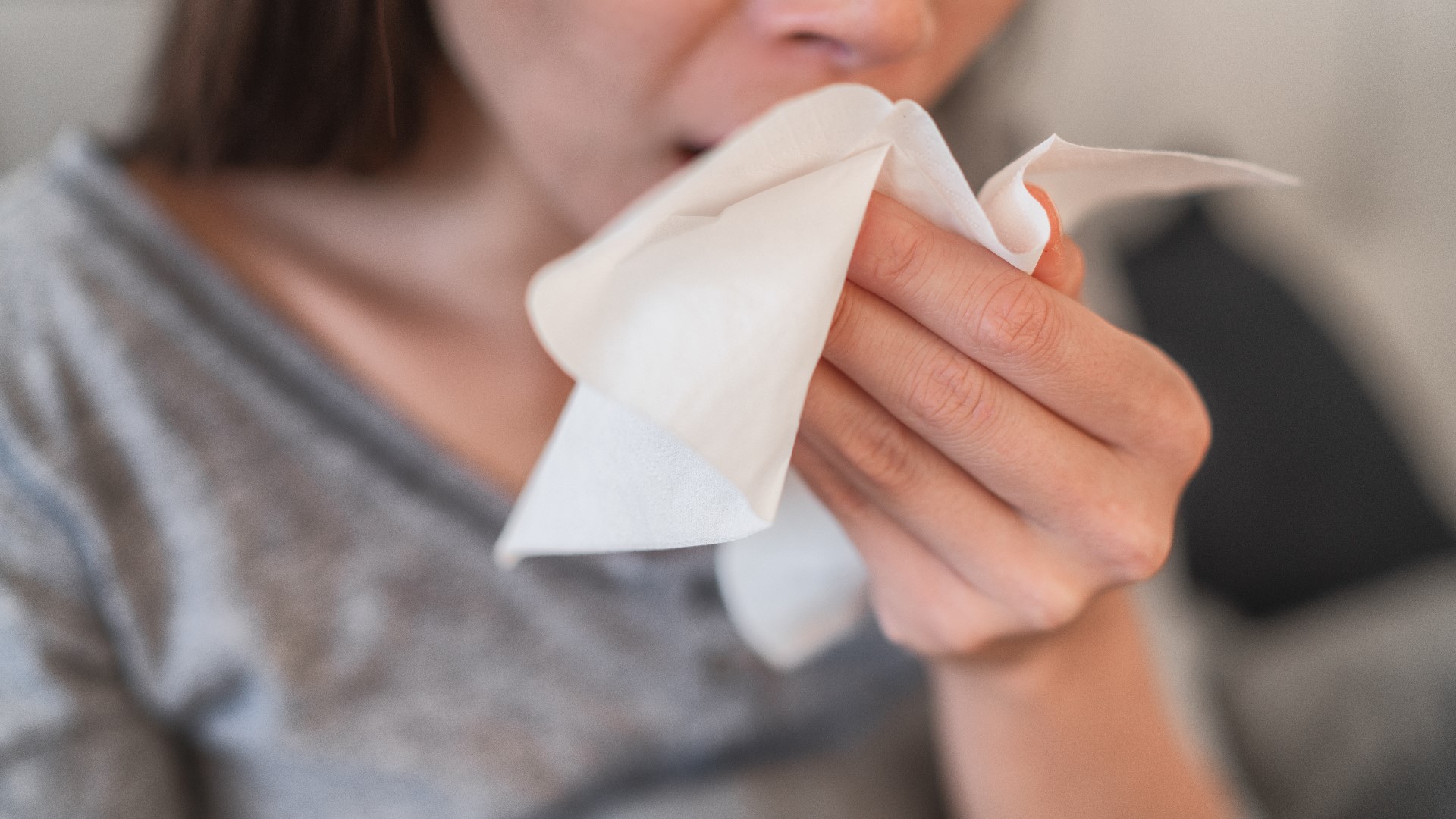CHARLOTTE, N.C. — If you found yourself with a runny nose and watery eyes this weekend, that's because pollen counts were high across the Carolinas.
Spring means warm weather and blooming foliage, but for those with seasonal allergies, it's full of wheezing, coughing and sneezing due to all that pollen.
But is there a specific time of day when staying indoors could help relieve your allergies?
THE QUESTION
Is there a certain time of day when pollen counts are higher?
THE SOURCES
- Dr. Carlos G. Paxtor, a pediatrician with Piedmont Medical Center
- Carlos Paxtor, a family nurse practitioner with Piedmont Medical Center
- Dr. Sara Bluestein, a pediatric allergist with Atrium Health Levine Children’s
THE ANSWER
Yes, there are certain times of day when pollen counts are higher. It's in the middle of the day.
WHAT WE FOUND
Bluestein says allergy season is here with warm weather in the Charlotte region.
"As soon as the warmer weather starts here, around mid-February, the tree pollen starts," Bluestein said.
But what about a specific time of day? Is there a "safe" time to be outdoors if you're affected by pollen?
"Pollen counts tend to be the highest midday," Bluestein said. "That may be a good time to take a break from outdoor play."
Paxon agrees, saying the pollen counts generally start to rise in the early morning. They hit their peak by midday and tail off in the late afternoon.
The WCNC Charlotte weather team agrees, providing this graph to show when pollen counts are at their peak.


Doctors say the easiest way to cut down on your allergies is to avoid what triggers you and just stay inside.
"If you know you're allergic to things that are outside, then you're not going to be going outside all day long," Paxtor said. "You're not going to be playing outdoor football if you don't have to, you're not going to be cutting the grass for everybody in your neighborhood."
But if you have to be outside all day, when should you start taking allergy medicine?
“You want to take them when the season starts and before spending long periods of time outside,” said Bluestein.
She says if over-the-counter medicine doesn’t seem to be working for you, see your doctor.
“Many people make the mistake of sticking with a medication that's only having minimal benefit, or trying multiple different brands of the same medication without relief," Bluestein said. "If that's the case, it's time to see your primary doctor, who may refer you to an allergist to discuss alternative treatments or more targeted therapies."
Both Dr. Paxtor and his son recommend the use of saline solution or saline nasal spray.
"That is to wash out your nose, you can do the spray, you can do the wash," Paxor said. "And that's to reduce the allergens that are built up in here causing you your symptoms.”
One good thing to keep in mind is how to tell if your symptoms may be more than just allergies.
“We can say that a clear nasal discharge or white discharge is more typical of an allergy problem," Dr. Paxtor said. "And when you have a color to it, green or yellow discharge, you may have a case for an infectious process. Also, if you have a fever is definitely not an allergy, because an allergy would not give you a fever."
VERIFY is dedicated to helping the public distinguish between true and false information. The VERIFY team, with help from questions submitted by the audience, tracks the spread of stories or claims that need clarification or correction. Have something you want VERIFIED? Text us at 704-329-3600 or visit /verify.

